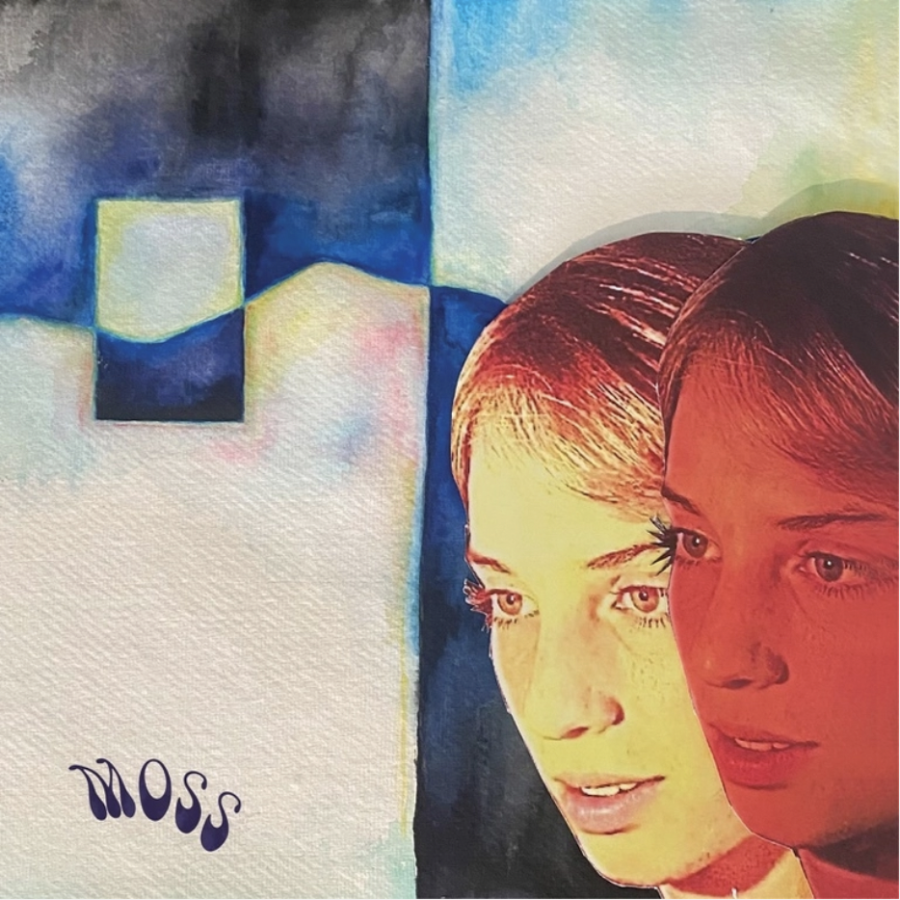“MOSS” is a dull exploration of memories
Maya Hawke looks back on her past in her sophomore new album and reveals the introspection of her past
The “MOSS” album cover features Maya Hawke self-reflecting over a retro background.
October 2, 2022
Actress and singer Maya Hawke, known for her role as Robin Buckley in the popular Netflix series “Stranger Things,” released her second studio album “MOSS” on Sept. 23, just over two years after her debut album “Blush.” From the graceful tunes in “Driver” and beautifully thought-out lyrics in “Crazy Kid,” Hawke shares insights from her short musical career.
The album presents nostalgic stories from her childhood through meaningful and sentimental lyrics, with an emphasis on herself. The tracks give her perspective on relationships with herself, others and her parents, Uma Thurman and Ethan Hawke. However, throughout the album, it is evident that Hawke struggles with musical variation and creative purpose when writing. Instead, she tends to resort to repetitive and previously used sounds, making the album tiresome.
Hawke uses the same instruments for the majority of the album, making the songs sound repetitive. The creative absence in “MOSS” prevents the individual tracks from standing out on their own. The first two songs on the record, “Backup Plan” and “Bloomed into Blue,” both emphasize string instrumentals. Even the dissonant chord ringing at the start of “Bloomed into Blue” devolves into acoustic finishes similar to the rest of the tracklist, butchering the initial intrigue of the song.
Furthermore, the background music playing behind choruses seems constant, causing the lyrics to become less catchy and the flow of each song to feel the same as the next. “Over,” “Driver,” and “Mermaid Bar” begin with slow beats, and all share similar stories regarding Hawke wanting to feel loved and have a sense of belonging. While her emotions uphold value, this predictability demotivates listeners to play to the next song and demonstrates her inability to create variety within the 45 minute record.

However, in contrast to most songs on the album, “Sweet Tooth,” the fourth track of “MOSS,” is distinct from the record’s other songs because of its upbeat and lively tone. Though the song primarily uses the acoustic guitar, it differs from the other songs on the album due to its faster pace. The lyrical work of “Sweet Tooth” symbolizes Hawke’s upbringing and her appreciation of her mother in lines such as, “I’m grateful for everything you put me through / It’s the only reason I’m any good to talk to.” The vocalist’s lyrics place listeners in a vulnerable position to feel what Hawke feels. Additionally, Hawke’s continuous use of meaningful lyrics creates a serene environment in which listeners can reflect on the profound scenarios from her past. Although, the lyrics display a lack of authenticity connecting specifically to Hawke making listening to the album feel less meaningful or insightful.
Overall, “MOSS” symbolizes moments of Hawke’s past and portrays her reminiscing on situations and opportunities of either regret or learning from her childhood. Her lyrical diversity plays an essential role in demonstrating the prevalent message within each track. However, due to the repetition of similar instruments and lack of vocal shift, the album “MOSS” indicates Hawke’s incapability to mature as a performer since her debut album “Blush” was released two years ago. Ultimately, the production of “MOSS” had the potential to become a successful album; instead, the production lacks a creativity factor that allows tracks to stand out, preventing the album from reaching its full potential.
3/5


















